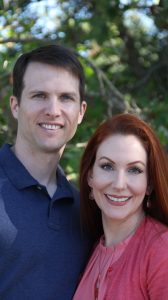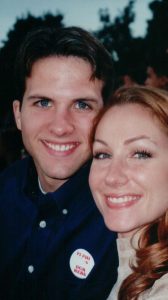I grew up in a rural farming community in Kentucky and wasn’t planning to attend college since no one in my family had graduated high school. I was engaged to my high school boyfriend just after turning 17 years old and assumed I’d get married and spend my time raising children, working a minimum wage job, and living paycheck to paycheck like the community members around me.
I had not considered a life bigger than what was around me and I didn’t have a way to pay for college, but two of my favorite teachers urged me to investigate loans and scholarships. Out of respect for them, I sent requests for college brochures to a handful of schools.
I included Ole Miss because my stepfather had once commented that Ole Miss had a good football team. That was really the only thing I’d heard about the school. The brochures showed a beautiful campus, and I decided to apply because there was nothing to lose.
I asked the Ole Miss counselor by phone, “What’s the hardest undergraduate major you offer?” He said, “Chemical engineering.” My logic was that a hard major would probably pay well.
Using the old-fashioned career books in my high school guidance counselor’s office, I looked up typical salaries for engineers and decided it would be worth taking out the loans. I successfully applied for an engineering scholarship and to the McDonnell Barksdale Honors College. With my college loans in hand, I broke off my engagement and packed up for Ole Miss in August 1996.
Wonderful teachers in Ole Miss Engineering
Ole Miss Engineering prepared me for more than just a job – it prepared me for life. Like those two high school teachers, I had a very special teacher at Ole Miss who encouraged me when I was convinced that I could not succeed – Dr. John O’Haver.
Dr. O’ never turned me away as I waited at his office door with questions before, after and between classes. In hindsight, I probably needed more support than the average engineering student, and it would have been within his rights to turn me away.
There were so many things about life that I didn’t know how to do like applying for grants, getting an internship, applying for jobs after graduation, preparing for job interviews. Dr. O’ helped me plan a life that I could not previously envision. So when I say that teachers changed my life, I truly mean it. Thank you to all the wonderful teachers in the Ole Miss Engineering program – you are changing lives, one student at a time.
Fulfilling career and family life
I could not have imagined the life I’m living. I married my college sweetheart, Judson Offner (BBA 00), and we have two wonderful boys. We’ve moved 13 times, lived in four international locations and traveled to more than 35 countries.
I graduated from Ole Miss in 2000 and was hired by ExxonMobil. After five years with them, I moved to Chevron. My focus at work is in health, environment and safety. HES combines the best of all worlds – I feel good about developing safer and more environmentally friendly ways of extracting and delivering oil and gas around the globe.
I’ve helped start up new business opportunities, supported a mega expansion project worth $45 billion, and I’m helping my company exit the country of Indonesia after 95 years of operations. It’s been a whirlwind of exciting adventures.
Passionate about diversity and inclusion
I am a big believer in diversity and inclusion. I realized how differently my life would have been without those two high school teachers encouraging me. To solve the challenges of the future, we need ideas from people with varying life experiences.
Much of my success is due to my ability to engage people doing the work in our oilfield – the people who have the solutions to many of our problems. But, because the policies and procedures are set at a higher level (mostly by engineers), the field workforce is rarely consulted, and we miss out on their ideas.
The same applies to company hiring practices – if we recruit the same types of candidates from the same schools with the same degrees – we cannot find new solutions. I’m confident that hiring and engaging broader groups of people will lead to more creative and sustainable solutions. Being in a senior leadership role, I am proud to help guide our efforts toward a more diverse and inclusive workplace.

